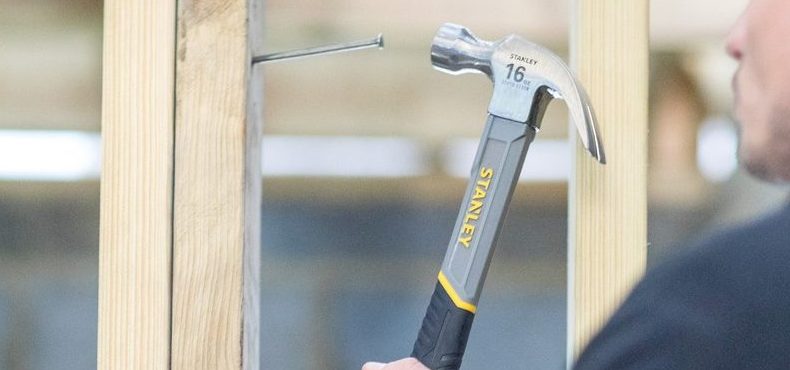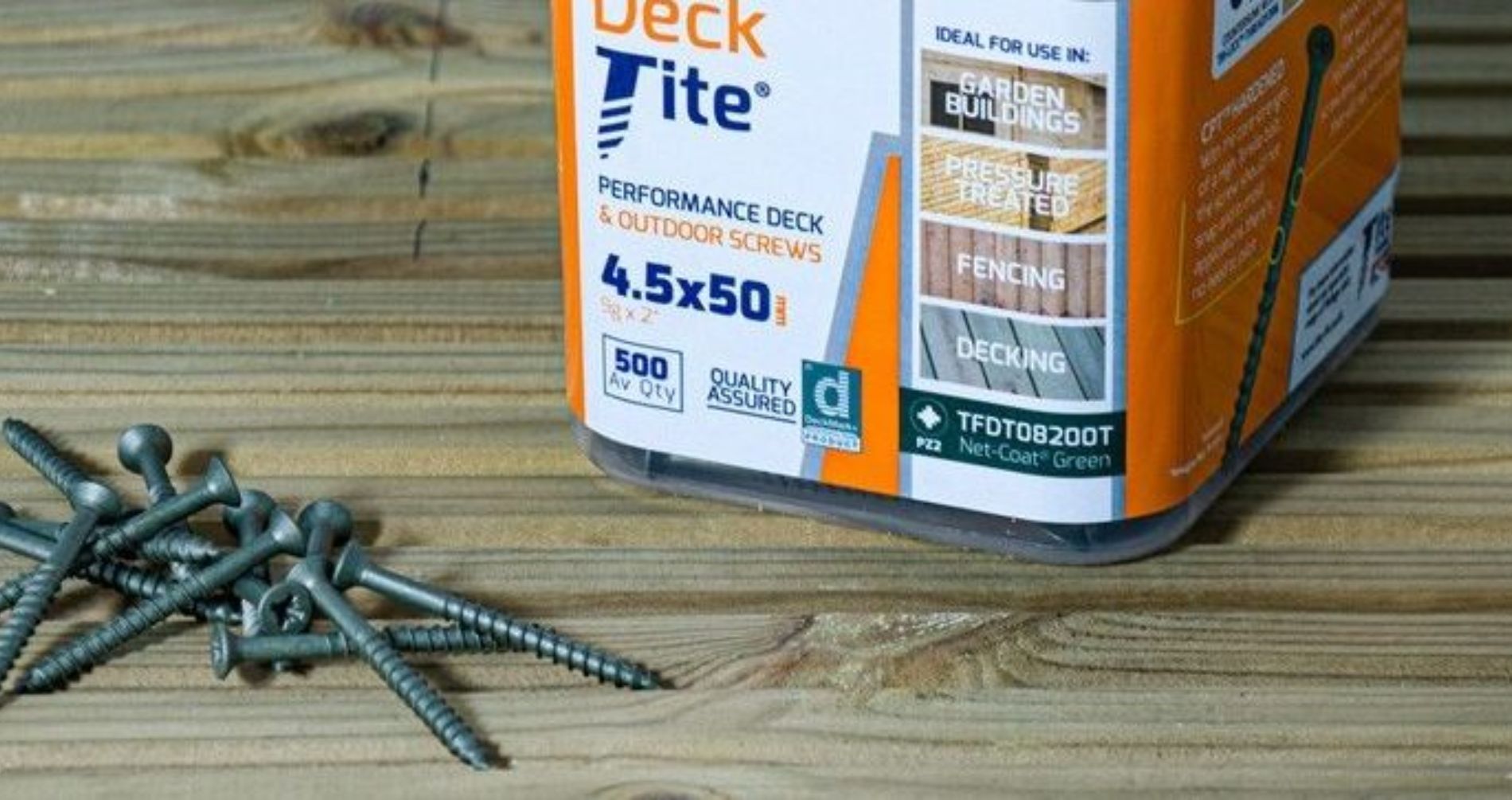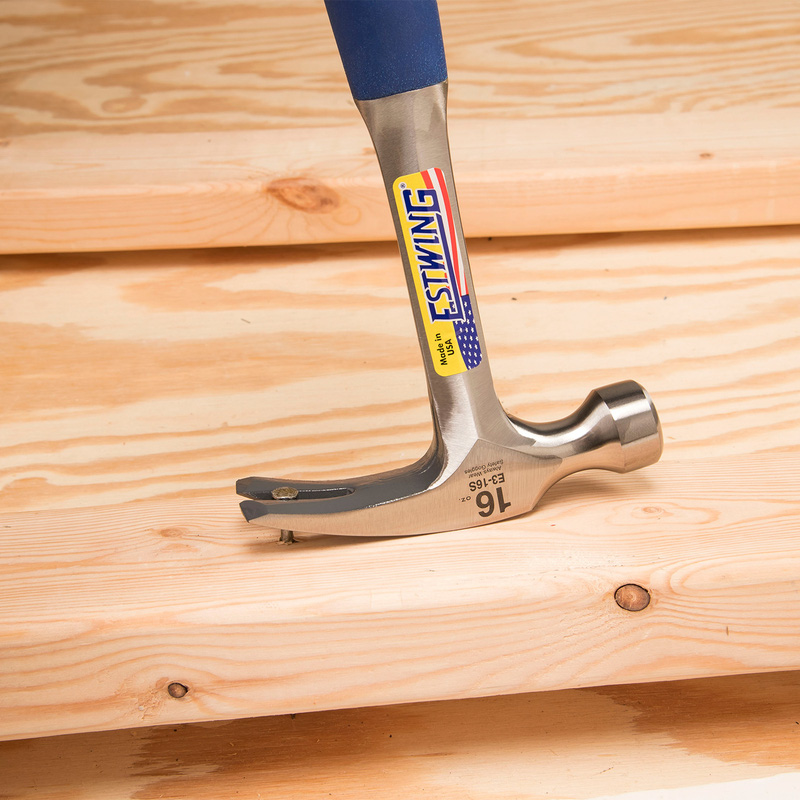Nails are indispensable in construction and woodworking, serving as the backbone for securely joining materials. Whether you're a DIY enthusiast or a professional tradesperson, the variety of nail types available can sometimes be overwhelming.
But don't worry, because in this guide we'll be covering the different types of nails available along with things you should consider, helping you make the right choice for your next DIY project.
The Parts Of A Nail
Nails consist of three key components: the head, shank, and point. These parts can take on different forms and serve distinct purposes, making each type of nail suitable for specific uses.
The head is the part struck by a hammer to drive the nail into the material. There are various head types, each serving different purposes, such as round heads, flat heads, chequered heads, countersunk heads, and clipped heads. Some heads, like countersunk nails, are designed to be hidden in the material, while chequered head screws stop the hammer slipping off the nail.
The shank is the main body of the nail that drives through the material to hold two pieces together. Smooth shanks are most common, but ring and spiral shanks are threaded which makes the nail more secure. The point is the tip of the nail that pierces the material. Diamond-shaped tips are most common as they are easily driven into the material, but blunt points are less likely to split the material.
Types of Nails
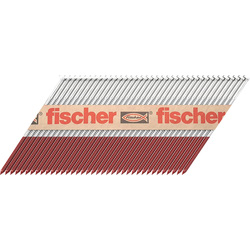
Collated Nails
Collated nails are a convenient solution for tradies and those dealing with large-scale carpentry and construction projects. These nails come arranged in long strips or coils which can be easily loaded into nail guns for quick and efficient driving.
Collated nails offer speed and convenience when driving nails into the material as well as when reloading, which is ideal for reducing labour time and saving money. Nail guns themselves are precise and consistent which improves the overall look and efficiency of any project.
Before choosing collated nails, it's important to ensure they’re compatible with your nail gun model as some need straight nails, whilst others need angled nails. You’ll also need to check the head type is suitable for your nail gun. Also, make sure to choose the appropriate nail for your job – you’ll find framing nails for heavy-duty construction, finishing nails for attaching trim or moulding, or coil nails for roofing.
Advantages
-
Speed and convenience
-
Precise and consistent
-
Different types to choose from depending on the task
Things to Consider
-
Check the nails are compatible with your nail gun
-
Choose the right collated nails for your project, framing, finishing or coil nails
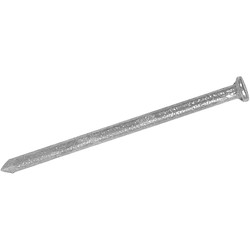
Galvanised Nails
Galvanised nails are coated with zinc and have high resistance to rust and corrosion. As a result, they are ideal for outdoor applications such as for fencing, decking and outdoor furniture where exposure to the elements is a concern.
The primary advantage of galvanised nails lies in their durability and protection against harsh environments. The reduced risk of rust or corrosion makes them a reliable choice for a range of situations where more delicate nails wouldn’t be up to the task.
When using galvanised nails, consider whether smooth or ringed shanks are more suitable for the materials you're working with and the level of grip required – ringed shanks will offer more security and are harder to remove, but smooth shanks are cheaper. Also, galvanised nails, whilst very durable and hardwearing, will eventually rust after many years and will need to be replaced.
Advantages
-
Durable and reliable
-
Can withstand harsh environments
-
The best choice for outdoor projects
Things to Consider
-
Choose between smooth and ringed nails
-
Will eventually rust

Masonry Nails
Masonry nails have robust shanks made of hardened steel or galvanised carbon which are designed to withstand being hammered into hard masonry materials like concrete and brick. They are essential for applications that need a strong grip on very hard surfaces.
Masonry nails have fluted or grooved shanks, which cause the nail to rotate while it’s been driven into the material so it provides a strong grip. They’re also resistant to corrosion so they can be used outside for years to come without degrading when exposed to the elements.
Consider where you’re using masonry nails, as different shapes are suited to different surfaces. If you’re working with concrete, round nails are best to avoid damage and effectively pierce into the surface. However, if you’re driving nails into brick, you’ll find that square masonry nails will reduce the risk of the brick splitting.
Advantages
-
Nail rotates when driving in, providing a strong grip
-
Corrosion resistant
Things to Consider
-
Use square shank nails for brick
-
Use round nails for concrete
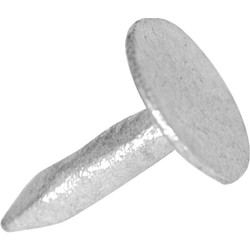
Roofing Nails
Roofing nails, including felt and clout nails, are tailor-made for roofing applications, securely attaching materials to roofs, such as shingles, felt, or flashing. They’re made from corrosion resistant metals including galvanised steel. You’ll find felt nails have a large head perfect for fixing roofing felt to the timber frame, while clout nails are shorter and have a smaller head, used to attach slate tiles to metal.
These nails have a relatively short shank and wide head, which provides a secure attachment for roofing materials onto the frame. They are also made from corrosion-resistant materials like galvanised steel to ensure they can withstand the elements over time.
When choosing roofing nails, those with ringed shanks will be harder to pull out and offer more security than smooth shanks. Also, keep in mind which materials you’re working with, as felt nails are better suited to fixing felt to timber, while clout nails are better for fixing slate tiles to metal. Making the right choice from the start will ensure the roof is durable and will last for years to come.
Advantages
-
Secure attachment for roofing
-
Corrosion resistant
Things to Consider
-
Ringed shanks will offer more security
-
Make the right choice before starting to ensure the fixing is secure and durable
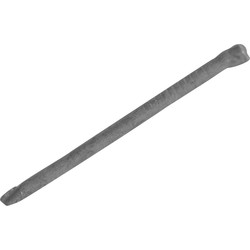
Panel Pins
Panel pins are fine nails designed for attaching lightweight materials to heavier ones. They are commonly used in delicate woodworking projects, such as cabinet and joinery work.
These nails offer delicacy and precision, so they’re perfect for concealed fastening in intricate woodworking tasks. Some panel pins feature polymer-headed versions suitable for outdoor use.
To make the most of panel pins, choose the appropriate length and diameter based on the materials you intend to join. Exercise care when driving them to prevent splitting or damaging the wood.
Advantages
-
Delicate, precise driving into materials
-
Concealed fastening
-
Some panel pins are suitable for outdoor use
Things to Consider
-
Consider overall length to ensure they’re secure and concealed
-
Care needed to ensure they don’t split the wood

Plastic Top Nails
Plastic top nails have a UPVC head, a threaded or ringed shank, and a sharp point. They’re used for fixing fascias, soffits, and window boards to buildings, playing an important role in making sure these elements are securely attached.
Plastic top nails have large plastic heads and the threaded shank means they offer a secure fit. They can be used outdoors as they’re UV stable and won’t degrade in the sun.
The main consideration with plastic top nails is that they are not concealed when driven into the material due to the large head. Select the right nail length based on the specific application. In general, opt for 65mm nails for fascias, 50mm for cover boards and 40mm for soffits.
Advantages
-
Threaded or ringed shank offer a secure fit
-
UV stable
Things to Consider
-
Visible when driven into the material
-
Consider the length of the nail depending on the application

Bright Nails
Bright nails are most commonly used for indoor fixings as they are a simple, low-cost nail with no additional coating. However, stainless steel options are available for outdoor use, offering additional protection against the elements.
Bright nails are versatile and can be used for a wide variety of indoor projects. They come in different head and shank types, allowing you to choose the most appropriate one for your specific needs.
When selecting bright nails, consider the required grip and whether the project is indoors or outdoors. Stainless steel options are recommended for outdoor projects where rust or corrosion could be a concern.
Advantages
-
Versatile
-
A range of head and shank types
Things to Consider
-
If using outside, make sure to choose stainless steel bright nails
Key Nail Considerations
Nail Material
Ensure the nails are made from appropriate materials based on the project's environment and longevity requirements. Most nails are made of steel, including stainless steel, carbon steel and galvanised steel which each offer extra protection against corrosion and rust.
Surface Material
Choose nails that suit the material you're securing to prevent the nail or the material breaking. For example, using a panel pin on masonry will likely cause the nail to bend or snap, or could damage the brick. Meanwhile, using a masonry nail in wood could cause the wood to split because they’re more tapered.
Nail Guage
The nail gauge means how thick the nail is. Lower gauge nails are thicker and stronger than higher gauge nails. If you’re after a stronger hold, choose a lower gauge, thicker option such as a 15g nail.
Nail Length
Nail lengths vary, so choose the right size for your project's thickness to ensure a secure fit. In general, you want the nail to be two to three times the thickness of the material you’re driving through. For example, if you’re attaching a 10mm piece of wood to a timber frame, choose a nail between 20 mm and 30 mm long.
Straight vs. Angled Nails
Ensure the nail type matches your nail gun's specifications to prevent any compatibility issues. Angled nails and nail guns are especially useful in tight corners or close to the floor, while straight nail guns are widely available and straight nails are often slightly cheaper.
Safety Workwear
Always protect yourself with safety goggles, gloves, and appropriate clothing when working with nails and tools to ensure a safe working environment. Safety footwear is also advisable to prevent injury to your feet from upturned nails.

